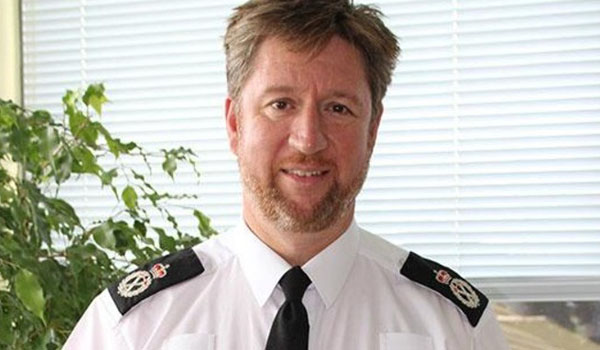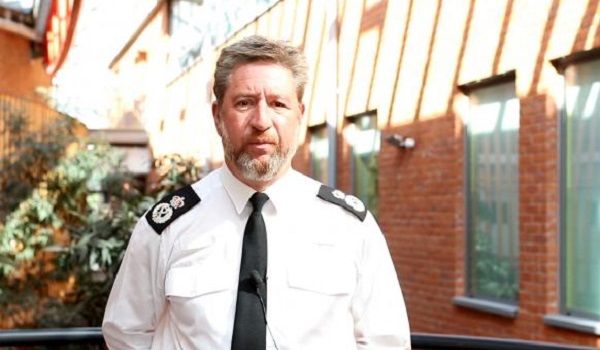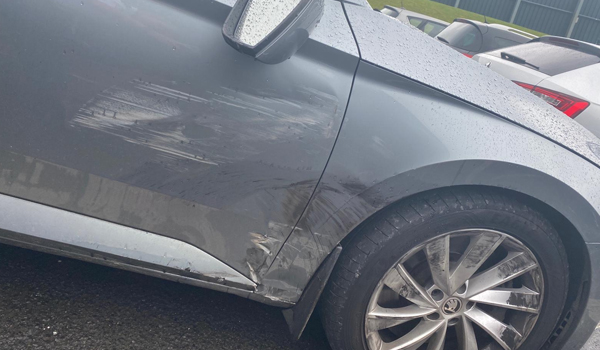Chief demands urgent action from social media companies on ‘greatest threat we now face in the online space’
Policing’s child protection lead has demanded social media companies do more against grooming as new figures reveal one in 50 young people have sent naked or semi-naked pictures to adults.
Chief Constable Simon Bailey claims platforms such as Twitter and Facebook are “fully aware” that their websites are being used to groom children but have made only limited efforts to address the problem.
He believes UK policing cannot do more against internet grooming – described as the “greatest threat we now face in the online space” – and warned the Government may have to legislate if more is not done to prevent online child sexual exploitation.
His comments follow NSPCC research that claims online grooming is becoming “normalised” as two per cent of primary school-age children report being sent indecent images.
The charity is now urging the Home Office to introduce tougher measures to regulate the images that can be shared on social networks.
Mr Bailey told Police Professional: “The bottom line is that social media companies are fully aware of what is going on their websites and services. But it appears a limited amount of work has been done to address the challenge, and far more needs to be done.
“If the social media companies cannot put in place appropriate safeguarding measures voluntarily, so images can’t be uploaded and shared and children can go into chatrooms and be safe, then there has got to be some form of response… and if they don’t do it voluntarily we might have to consider what legislation looks like.
“The police service response in this country to the threat of the proliferation of child grooming online is the best in the world. I’m not sure how much more we can do to protect children from this behaviour. It’s got to be the responsibility of the social media companies to start doing something positive about it.”
It is happening now, it is happening to very young children, it is happening so frequently that it’s becoming normalised, and it is not only coming from adult strangers, but also from known adults. Social networks have become a gateway for child abuse
The number of indecent images of children on the internet has exploded over the past few decades, up from less than 10,000 in the late 1990s to the point where there are now around ten million held on the national Child Abuse Image Database.
Forces are also arresting between 400 and 450 offenders every month, but Mr Bailey claims there is little more they can do without support from social media companies.
This call has been echoed by the NSPCC, which surveyed nearly 40,000 children aged seven to 16 and found two per cent had shared indecent images with adults.
An average of 4.5 per cent also reported receiving naked or semi-naked pictures from older people, with the NSPCC describing platforms like Twitter and WhatsApp as having become “a gateway for child abuse”.
Around a third of child abuse material on the internet is thought to be self-generated with most images taken in children’s own bedrooms, NSPCC analysis shows.
One child aged younger than 13 told researchers a girl from her primary school was sending half naked pictures because “it’s what everyone does”.
The NSPCC wants to see a new independent regulatory role created to introduce mandatory child safety rules for social networks.
It also wants children’s online accounts to be made much safer, and detailed reporting on the steps social networks are taking to protect young people.
NSPCC chief executive Peter Wanless said: “Grooming can no longer be shrugged off as secondary to other online crimes.
“It is happening now, it is happening to very young children, it is happening so frequently that it’s becoming normalised, and it is not only coming from adult strangers, but also from known adults. Social networks have become a gateway for child abuse.
“The NSPCC has launched a petition calling on Digital Secretary Jeremy Wright and Home Secretary Sajid Javid to put an end to the Wild West Web. We need tough regulation of social networks to make sure there are fundamental protections for children in place whatever sites they’re using.”
A Home Office spokesperson said: “Last year, we provided police forces in England and Wales with more than £20 million to enable dedicated officers to operate online in forums and chat rooms to identify and pursue offenders.
“But we cannot tackle this problem alone, and while tech companies have made positive steps in this area, they must continue to do everything possible to prevent their platforms being used to abuse and exploit children.
“We are currently reviewing options for a White Paper, setting out details of the legislation to be brought forward, which will be published later this year.”






